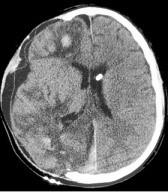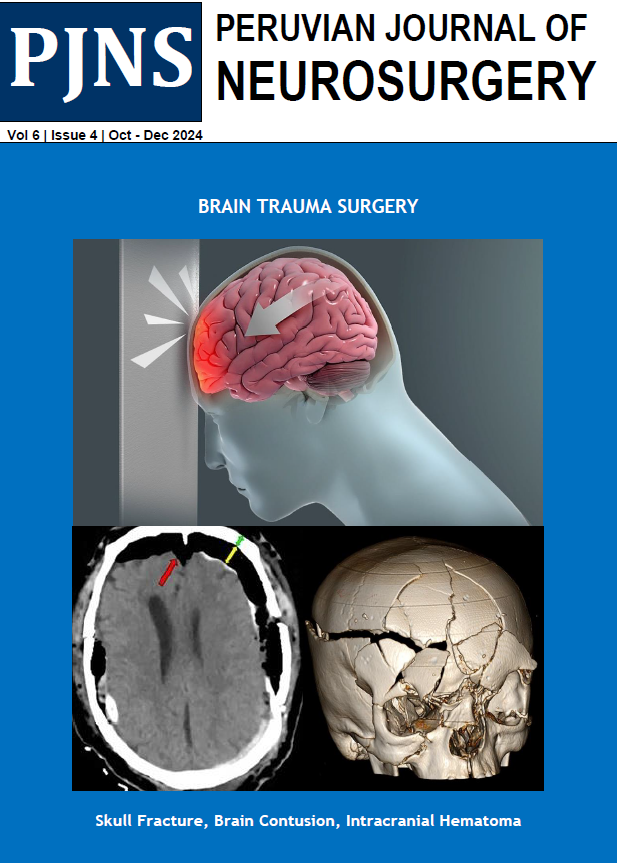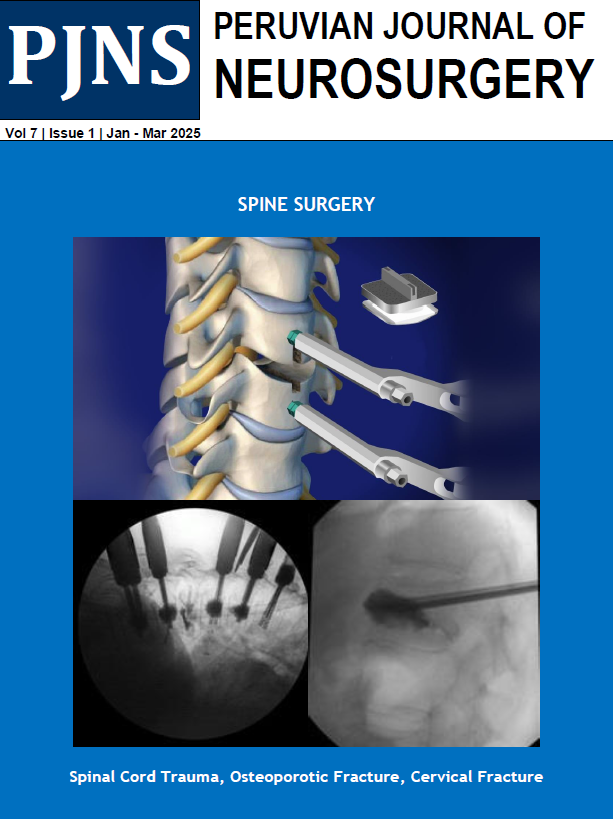Usted está aquí
Peruvian Journal of Neurosurgery
Decompressive Craniectomy in the Management of Refractory PostTraumatic Intracranial Hypertension
ABSTRACT
Objective: Traumatic intracranial hypertension is the major pathophysiological issue of traumatic brain injury and its treatment usually demands general and specific measures; nevertheless decompressive craniectomy is an extreme resource available for refractory cases, current data are not enough to define its indications and long term results.
Patients and Methods: This study evaluates a cohort of 32 patients with refractory traumatic intracranial hypertension submitted to decompressive craniectomy as a randomized method of treatment between 2004 and 2008.
Results: The most remarkable characteristics of the procedure were: execution period < 72 hours, wide and extensive bone platelet, and complete specific surgical technique (craniectomy + durotomy / duroplasty ± resection/evacuation); whereas the most relevant results demonstrated: reduction of the ICP value in a great proportion of patients, short period of time until normalization of the ICP and lower hospitalization period at the Neurosurgical ICU, with an index of complications close to 34% (mainly early) and rate of mortality about 18% (mainly neurological). Functional prognosis was favorable at discharge in 25% and at 6 months in 54%, with a quality of life defined as independent or low dependency.
Conclusion: Although traumatic intracranial hypertension has a heterogeneous course, descompressive craniectomy is a useful option for its control and a better outcome of the traumatic brain injury in the long term.



